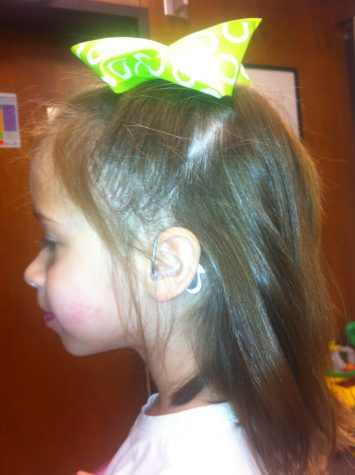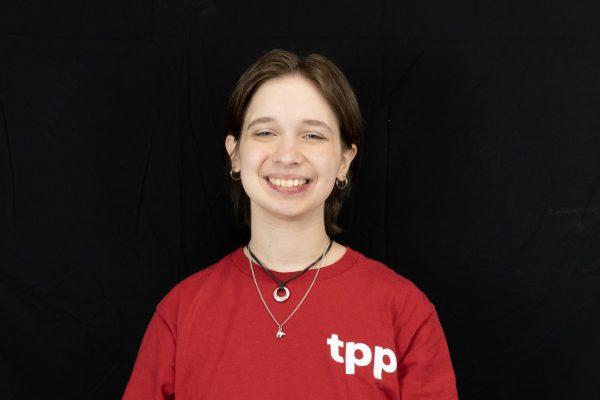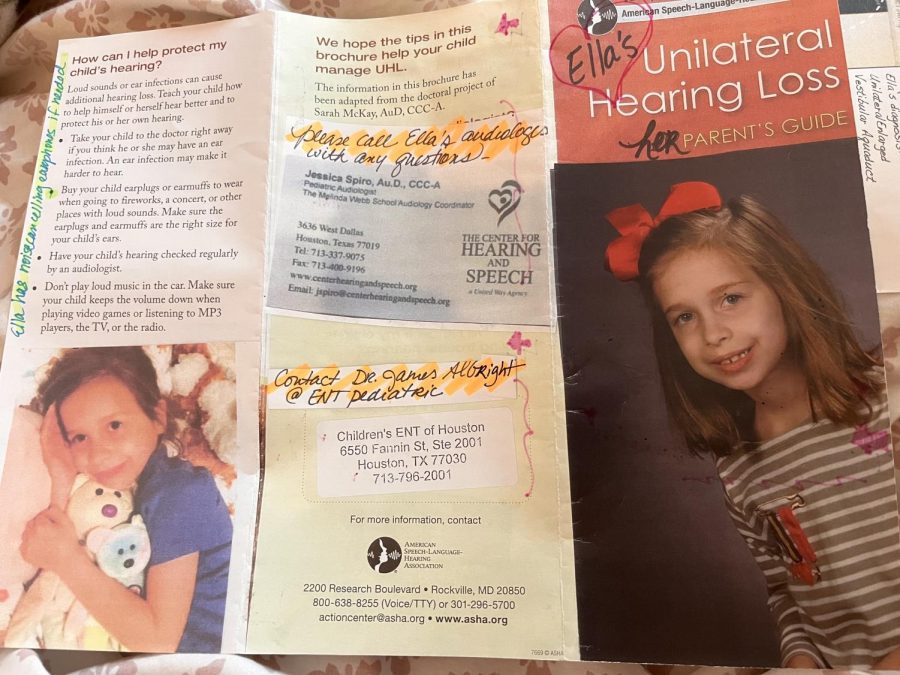Growing up with hearing loss
The pamphlet my mom would show my teachers when they had conferences. It had all the information about children with hearing loss as well as my personal accommodations.
The screech of the monitor in my right ear barely fazed me. I couldn’t hear the click of the phone as the school nurse called my mom,
“Ella has severe hearing loss in her right ear; she needs to go to the doctor.”
At the age of 6, after my annual hearing test at school, my mom started taking me to places from hospitals to hearing centers. My life was filled with monitors clipped to my shirt, my erratic heartbeat and tears when I stepped into the hearing booth and audiograms piled high in my mom’s study.
With my diagnosis came a lot of changes. I started to wear a hearing aid to school and told my teachers that I couldn’t hear instructions as well as the other kids. I felt so much frustration I could cry at any moment. I had a lot of questions.
Why did I have to wear the hearing aid in the first place?
Why is my hearing the way it is?
What’s wrong with me?
My questions went unanswered for a long time. As a kindergartner, there wasn’t much my parents could explain to me without my head reeling with confusion.
But as I got older, I was able to find the answers on my own.

On what felt like my millionth doctor visit, I glanced at the 3D model of an ear on my doctor’s desk, showing the anatomy of the ear in perfect detail. My mom asked about it, and the doctor pointed to the different parts of the ear, explaining what each part does and how it works.
The doctor compared the model to my ear. She explained what was different about me was that a small bone in my ear was misshapen. Since it was so close to my ear drum, it caused serious nerve damage.
It was a fairly simple explanation, but in that moment I felt like I finally knew that mysterious part of myself.
I started to be hyper aware of every way my hearing affected me. I paid attention to how I followed a person’s lips with my eyes to understand them, or the ringing I heard when a crowd’s conversations overlapped each other.
I started to appreciate the things around me a lot more. I felt like I loved music even more. I memorized each beat and note with each new song that played.
I started to advocate for myself too.
Throughout elementary school, my mom was behind the scenes, regularly meeting with teachers. My files were piled high in her office and stuffed into folders.
As I got to seventh grade, she started to encourage me to meet with the teachers myself. I was terrified at first. I was intimidated by having a one-on-one meeting with a teacher about such a big aspect of my life. It took a lot of awkward discussions with my teachers when I was first starting to speak up. But with practice, I gained confidence to comfortably talk about my hearing and how it affects me.
Hearing loss and deafness is rarely talked about in modern media, especially in young adults or children.
I find it so, so important to spread awareness about my experiences, as well as others. Hearing loss is a very real and impactful thing that I deal with in everyday life.
As a high school student, my school environment often isn’t catered to me, much like others who deal with physical and learning disabilities. I’ve had to frequently ask for instructions to be repeated for me, struggle to get through loud, crowded hallways and even get harassed because of it.
I’ve had people scream in my ear to see if I “hear it.” I’ve had people not believe me at all because I speak clearly. I’ve had teachers throughout my school career tell me they don’t understand why my hearing needs to be catered to.
I’ve had to adapt to my surroundings to be as comfortable as possible.
It’s been extremely difficult at times, but along the way I’ve learned to embrace my hearing loss and not let my experiences go unnoticed.
Your donation will support the student journalists of Bellaire High School. Your contribution will allow us to purchase equipment and cover our annual website hosting costs.




Audrey Han • Jan 26, 2023 at 12:03 am
Such an inspiring story!!